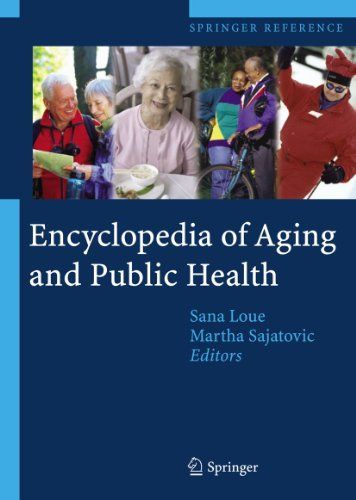
Encyclopedia of Aging and Public Health
Americans are living longer, and the elder population is growing larger. To meet the ongoing need for quality information on elder health, the Encyclopedia of Aging and Public Health combines multiple perspectives to offer readers a more accurate and complete picture of the aging process. The book takes a biopsychosocial approach to the complexities of its subject. In-depth introductory chapters include coverage on a historical and demographic overview of aging in America, a guide to biological changes accompanying aging, an analysis of the diversity of the U.S. elder population, legal issues commonly affecting older adults, and the ethics of using cognitively impaired elders in research. From there, over 425 entries cover the gamut of topics, trends, diseases, and phenomena: -Specific populations, including ethnic minorities, custodial grandparents, and centenarians -Core medical conditions associated with aging, from cardiac and pulmonary diseases to Parkinson’s and Alzheimer’s -Mental and emotional disorders -Drugs/vitamins/alternative medicine -Disorders of the eyes, feet, and skin -Insomnia and sleep disorders; malnutrition and eating disorders -Sexual and gender-related concerns -And a broad array of social and political issues, including access to care, abuse/neglect, veterans’ affairs, and assisted suicide Entries on not-quite-elders’ concerns (e.g., midlife crisis, menopause) are featured as well. And all chapters and entries include references and resource lists. The Encyclopedia has been developed for maximum utility to clinicians, social workers, researchers, and public health professionals working with older adults. Its multidisciplinary coverage and scope of topics make this volume an invaluable reference for academic and public libraries.